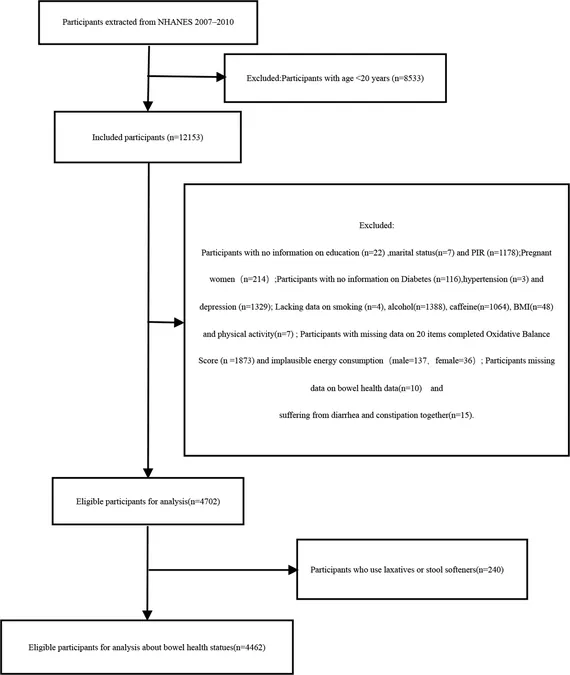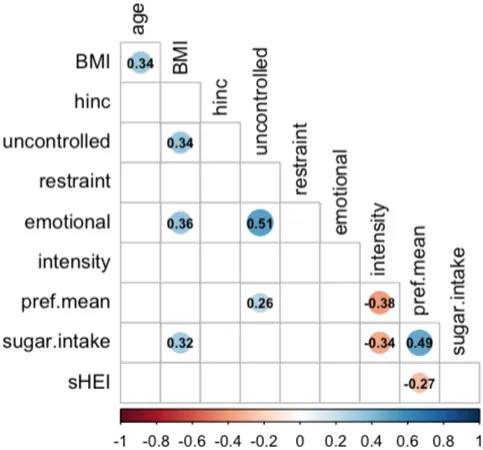
Unveiling the Hidden Connection: How Antioxidants May Combat Constipation and Diarrhea in U.S. Adults
2025-01-22
Author: Wei Ling
Introduction
Constipation and diarrhea are two of the most prevalent gastrointestinal disorders affecting the adult population in the U.S. Alarmingly, approximately 19.2% and 20.7% of adults suffer from persistent constipation and diarrhea, respectively.
Constipation is marked by having fewer than three bowel movements per week and is often accompanied by hard, dry stools. In contrast, diarrhea is identified as having three or more watery bowel movements a day, indicating a significant imbalance in gut health.
Understanding the Gender and Lifestyle Factors
Interestingly, the roles of sex and lifestyle factors are increasingly recognized in the onset and severity of these gastrointestinal issues.
For instance, studies suggest that women are more vulnerable to constipation, while men often experience higher rates of diarrhea. The pressing question remains: What underlying biological mechanisms connect these disorders to lifestyle factors such as diet and antioxidant intake?
Research Findings on Oxidative Balance and Digestive Health
A groundbreaking analysis utilizing the National Health and Nutrition Examination Survey (NHANES) data from 2007 to 2010 has shed light on the relationship between oxidative balance and digestive health.
Reactive oxygen species (ROS) are natural byproducts of metabolism that, when in excess, can lead to oxidative stress—damaging cells and contributing to inflammatory processes in the gut.
This oxidative stress can create a vicious cycle, potentially triggering gastrointestinal symptoms, including diarrhea.
The Role of the Oxidative Balance Score (OBS)
The recently developed Oxidative Balance Score (OBS) serves as a composite measure, evaluating the balance of antioxidants and pro-oxidants in an individual's diet and lifestyle.
Higher OBS indicates greater dietary antioxidant intake which has been linked to improved health outcomes, including a reduced risk of chronic diseases like type II diabetes and cardiovascular issues.
Study Insights on Gender and Antioxidants
Researchers aimed to explore whether higher OBS values could correlate with reduced instances of constipation and diarrhea among men and women.
To this end, a sample of 4,462 adult participants who had complete data were included in the study.
The findings were enlightening: for males, every additional point in the OBS correlated with a 6.3% decrease in constipation risk.
For females, the same observation was made regarding diarrhea, where an increase in OBS resulted in a similar reduction.
Implications for Diet and Gut Health
These results suggest that dietary modifications rich in antioxidants could not only alleviate gastrointestinal disorders but also have further benefits, such as reducing the risk of depression, particularly in women.
Antioxidant-rich diets, such as those following the Mediterranean model, include foods high in vitamins C and E, dietary fiber, and healthy fats—all of which may help in maintaining optimal gut health.
The Role of Gut Microbiota
Moreover, the findings hinted at the potential role of gut microbiota in mediating the effects of oxidative stress on bowel health.
For example, imbalances in gut flora have been associated with conditions like diarrhea, emphasizing the need for comprehensive dietary strategies that promote both antioxidant intake and microbiota diversity.
Key Takeaway
This research highlights the promise of an antioxidant-rich lifestyle in tackling common gastrointestinal issues such as constipation and diarrhea.
By adopting a diet filled with fruits, vegetables, whole grains, and healthy fats, individuals can potentially improve their gut health while also enhancing their overall well-being.
So, if you're struggling with digestive woes, consider this: the answer may be lying in your plate!
Remember, small dietary changes can lead to significant health improvements. Stay tuned for more exciting updates in gut health research!



 Brasil (PT)
Brasil (PT)
 Canada (EN)
Canada (EN)
 Chile (ES)
Chile (ES)
 Česko (CS)
Česko (CS)
 대한민국 (KO)
대한민국 (KO)
 España (ES)
España (ES)
 France (FR)
France (FR)
 Hong Kong (EN)
Hong Kong (EN)
 Italia (IT)
Italia (IT)
 日本 (JA)
日本 (JA)
 Magyarország (HU)
Magyarország (HU)
 Norge (NO)
Norge (NO)
 Polska (PL)
Polska (PL)
 Schweiz (DE)
Schweiz (DE)
 Singapore (EN)
Singapore (EN)
 Sverige (SV)
Sverige (SV)
 Suomi (FI)
Suomi (FI)
 Türkiye (TR)
Türkiye (TR)
 الإمارات العربية المتحدة (AR)
الإمارات العربية المتحدة (AR)